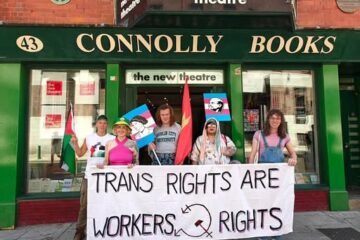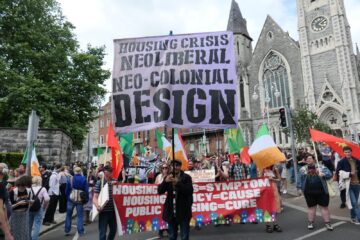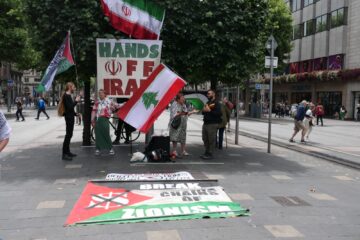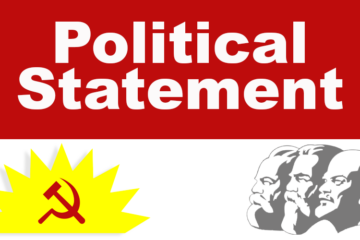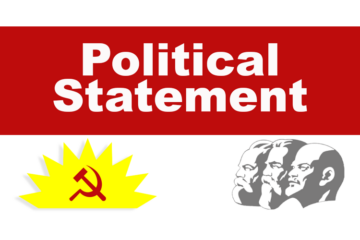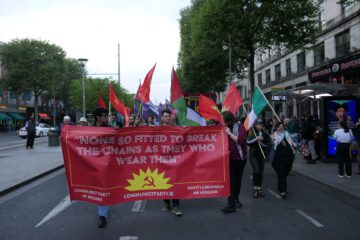The decision of the DUP to return to Stormont has been greeted as a victory for democracy by the Irish and British governments as well as the main political parties within the 6 counties. Sinn Féin’s Michelle O’Neill will become First Minister, the first non- unionist to head a devolved administration since Britain partitioned Ireland over 100 years ago. This will be hailed as proof that the six county statelet is now a stable democracy, its politicians having matured under the benign influence of the British government which acts as an honest broker to curb the mutual animosity of the two hostile tribes.
The reality of course is much different. Stormont’s role is to provide a democratic façade to the continued denial of democracy in Ireland. It is an institutionalism of sectarianism, where Nationalist is pitted against Unionist, in a futile pursuit of gaining dominance over each other within a set of institutions designed and incorporated to deny any control of their respective lives. Stormont’s function is to disguise the reality of where political power lies. The British ruling class maintains executive power. The returned Executive will continue with the same policies as before i.e. overseeing the implementation of British government cuts.
The election of the first non-unionist First Minister, one who describes herself as an Irish Republican, reflects the changing political realities of the relationship between British Imperialism and Ireland, North and South. O’Neill’s election reflects how Sinn Féin has become a co-administrator, along with Unionism, of British rule within the six counties. This has led to a crisis of identity within Unionism as the protectors of the Union and of Britain’s interests in Ireland. However, Britain’s position has not been weakened, it now has Republicanism, in the form of Sinn Féin, vying with Unionism for the role of chief administrator of London’s rule in the 6 counties, while working class communities compete on an increasingly sectarian basis for their share of the crumbs.
While the Good Friday realignment/ renegotiation of British imperialism in Ireland does, on the face of it, point to a consideration of the possibility of a unified Ireland and much allusion to the potential of a Border Poll providing the mechanism whereby this can happen. It is clear that any decision to hold a border poll remains with the British Secretary of State and any decision around the results of a poll again is firmly in the gift of the British alone. The agreement between the DUP and the British Government, “Safeguarding The Union” states in point two of the Executive Summary that the negotiations took place to ensure “the cementing of Northern Ireland’s integral place in the UK’s internal market.” It also states that the document is the result of negotiations between the British Government and the DUP “alongside engagement with other Northern Ireland political parties and the business community.” So much for “parity of esteem”. Point 65 of the document states that “The (UK) Government will provide statutory assurance that Northern Ireland remains an integral part of the United Kingdom. The Government will legislate to affirm Northern Ireland’s place in the Union.”
There is nothing in this document that advances the struggle for democracy in Ireland. The Communist Party of Ireland remains committed to building a socialist united Irish Republic. We emphasise that “Northern Ireland” is a failed state and that there can be no sustainable internal solution. We call for a British Declaration to Withdraw from Ireland, allowing Irish people to decide our own destiny by establishing a national democratic state. Workers, north and south, cannot afford a passive strategy which would allow others to decide our fate. We need to bring forward demands and develop strategies that put working class interests to the fore. We need to educate, agitate, and organise to build for unity, peace and socialism through working class unity and effort. Raising demands and developing struggles on an all-Ireland basis, where possible, to turn an aspiration for a United Ireland into concrete forms of social and political campaigns.



